Blavatnik School of Government
Ukrainian scholar and priest Cyril Hovorun explains how Orthodoxy is shaping politics and political theology in Russia and Eastern Europe.
As an insider to church politics and a scholar of contemporary Orthodoxy, Cyril Hovorun outlines forms of political orthodoxy that have emerged from processes of secularisation and the rise of nation states. Developing in the shadow of Western political thought and theology, Orthodox political theologies grappled with the tensions inherent to their own political contexts. These tensions often stemmed from its relationship with and commitment to national identity and (the Russian) empire. Historically, Orthodoxy has charted a dichotomy between national identity and empire, but pursued different centres of gravity in which national identity developed in contrast with empire.
Hovorun draws a picture of religion being politicised, and in that political space being vulnerable to nationalism, antisemitism, and historically fascism as well. Does this vulnerability stem from its politicisation and even weaponisation, or is it inherent to a religion invested in culture, politics and the common good? What is the relationship between national and transnational spaces of Orthodox identity-making? And how does this analysis relate to more recent developments, such as in Georgia in 2008 and in Ukraine since 2014?
Roundtable
The lecture is followed by a roundtable with Katharina Kunter, Petr Kratochvil, Jenny Leith and Marietta van der Tol. The roundtable will discuss how the use of Orthodoxy in the Russo-Ukrainian war is contested among Christian and other religious communities in Russia and Eastern Europe, how resistance is taking shape within the Russian-Orthodox Church and what local religious communities can do.
Please note this event takes place at the University Church of St Mary the Virgin (The High Street, Oxford, OX1 4BJ). No registration is needed. Alternatively, watch the livestream of this event on YouTube.
This public lecture is offered as part of the conference "Christian identity in national, transnational and local space: perspectives from Protestantism, Orthodoxy and Roman Catholicism", organised by the Blavatnik School of Government, 4-5 April 2022. The public lecture is co-hosted with the University Church.
Speakers
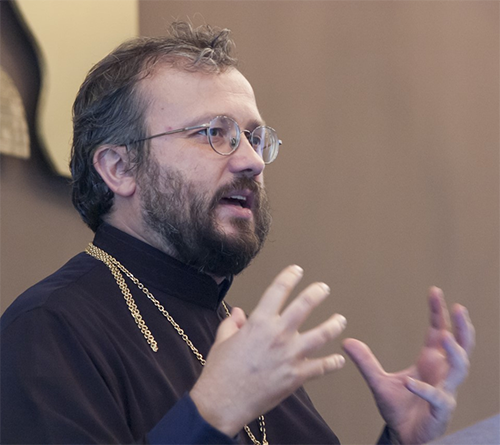 Prof.
Dr. Cyril Hovorun is an Orthodox priest and scholar of theology from
Ukraine. He is author of the books Political Orthodoxies: The
Unorthodoxies of the Church Coerced (2018) and Scaffolds of the Church:
Towards Poststructural Ecclesiology (2017).
Prof.
Dr. Cyril Hovorun is an Orthodox priest and scholar of theology from
Ukraine. He is author of the books Political Orthodoxies: The
Unorthodoxies of the Church Coerced (2018) and Scaffolds of the Church:
Towards Poststructural Ecclesiology (2017).
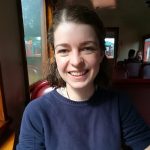 Dr
Jenny Leith is a Cambridge-based scholar of political theology, with a
specific interest in Anglican ecclesiology and the relationship between
national and local identities.
Dr
Jenny Leith is a Cambridge-based scholar of political theology, with a
specific interest in Anglican ecclesiology and the relationship between
national and local identities.
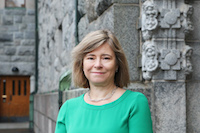
*Dr Katharina Kunter is Professor of Contemporary Church History at the Faculty of Theology (University of Helsinki).
 Dr Petr
Kratochvíl is a full Professor of International Studies and a senior
researcher at the Institute of International Relations in Prague.
Dr Petr
Kratochvíl is a full Professor of International Studies and a senior
researcher at the Institute of International Relations in Prague.
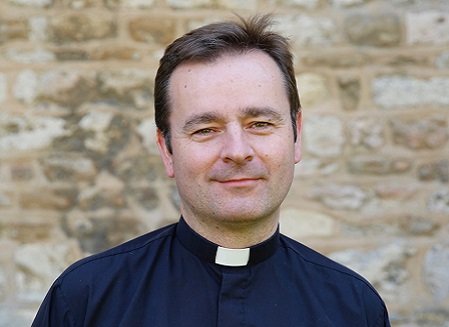 The
Revd Dr William Lamb is the Vicar of the University Church. He is also
an Associate Member of the Faculty of Theology and Religion and a
Supernumerary Fellow of Harris Manchester College, Oxford.
The
Revd Dr William Lamb is the Vicar of the University Church. He is also
an Associate Member of the Faculty of Theology and Religion and a
Supernumerary Fellow of Harris Manchester College, Oxford.
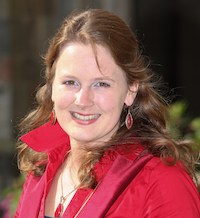 Dr
Marietta van der Tol is the Alfred Landecker Postdoctoral Fellow at the
Blavantik School of Government. She leads the international networking
collaboration ‘Religion, ethnicity and politics in German, Dutch and
Anglo-American contexts: nationalism and the future of democracy’, as
well as the Cambridge-based project ‘Protestant political thought:
religion, state, nation’.
Dr
Marietta van der Tol is the Alfred Landecker Postdoctoral Fellow at the
Blavantik School of Government. She leads the international networking
collaboration ‘Religion, ethnicity and politics in German, Dutch and
Anglo-American contexts: nationalism and the future of democracy’, as
well as the Cambridge-based project ‘Protestant political thought:
religion, state, nation’.
*Image credit: University of Helsinki / Maarit Kytoharju.


Δεν υπάρχουν σχόλια:
Δημοσίευση σχολίου
Σημείωση: Μόνο ένα μέλος αυτού του ιστολογίου μπορεί να αναρτήσει σχόλιο.